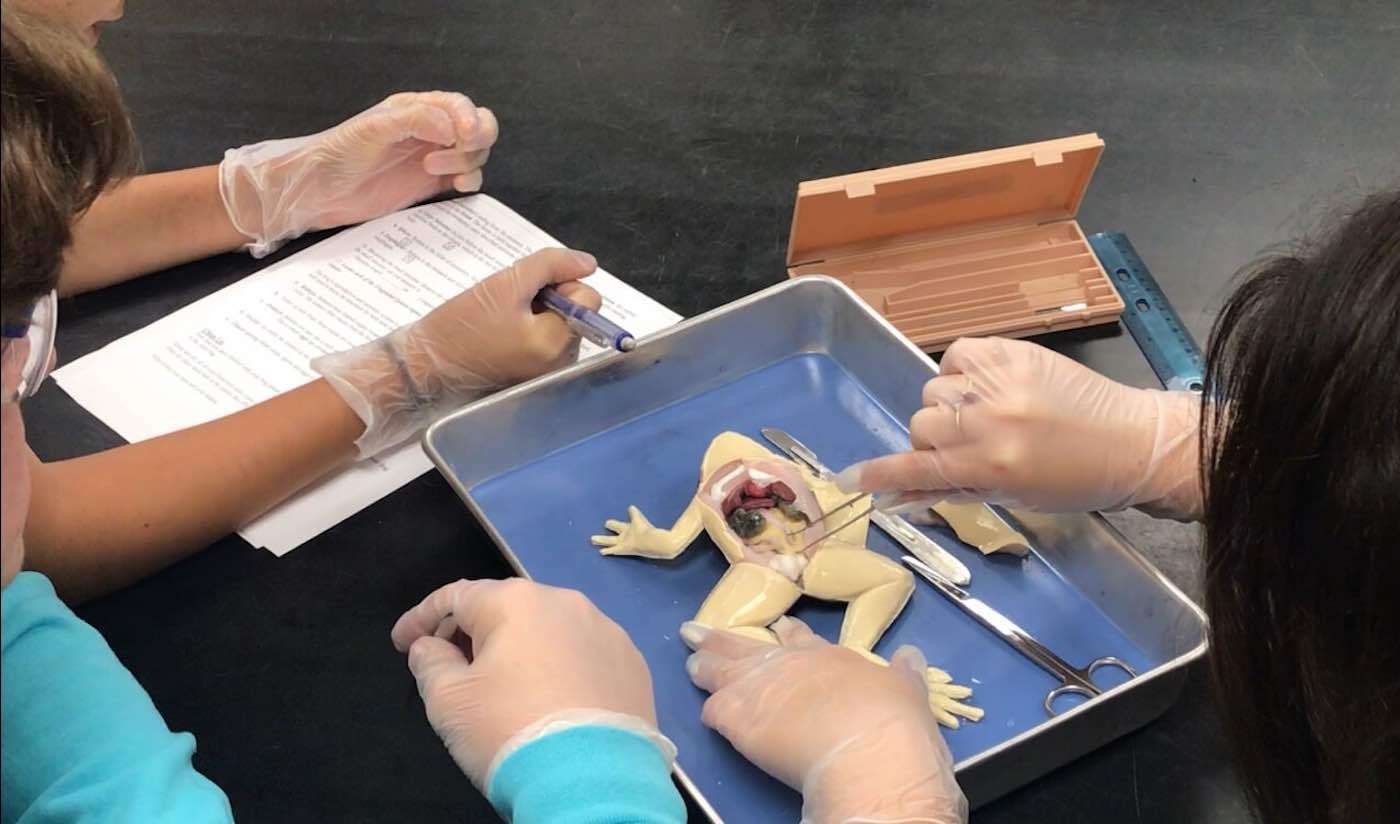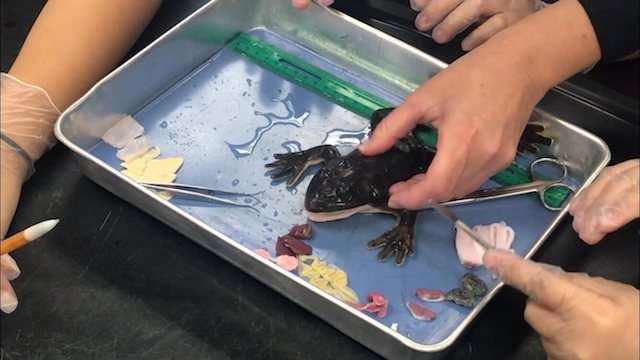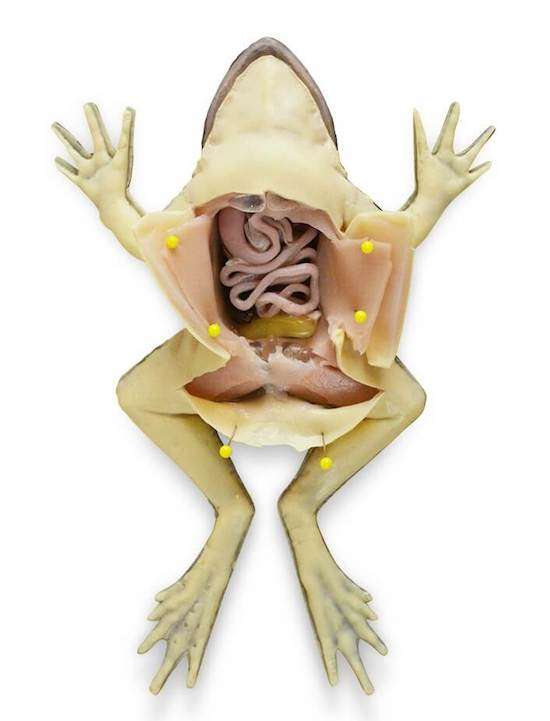Stray Dog Found Keeping Litter of Newborn Kittens Warm Amidst Frigid Temperatures On Canadian Road
If Serenity the dog had not felt compelled to protect the 5-week-old kittens, they may not have been able to survive the chilly Ontario temperatures.

Dissecting frogs in science class may soon be a thing of the past thanks to these life-like replicas.
Earlier this week, nearly 100 students at J.W. Mitchell High School in New Port Richey, Florida were able to try a revolutionary new educational tool: the SynFrog, a hyper-realistic synthetic frog that can completely replace the use of frogs for dissection in K-12 and collegiate science classes.
At least 3 million frogs are killed annually for such lessons. In addition to contributing to declining frog populations, frog dissections can also discourage queasier students from taking more of an interest in science.

That's why SynDaver-the world's leading manufacturer of hyper-realistic, synthetic human and animal surgical trainers-partnered with PETA to create the true-to-life, hands-on dissectible frog so that it is almost indistinguishable from real ones.
Unlike the preserved bodies of dead frogs, which are bathed in chemicals and have monochromatic organs that are difficult to differentiate, the SynFrog is free of formaldehyde and formalin and contains removable and anatomically correct organs that accurately mimic living tissue.
"PETA has promoted virtual dissection for years, but some teachers still request ‘hands-on' teaching tools-and that's where the SynFrog comes in," says PETA Vice President of International Laboratory Methods Shalin Gala. "It's safer, more effective, and more humane."

The frogs are currently being sold for $150 apiece on the SynDaver website.
Despite how the replica is significantly more expensive than a real frog, its synthetic tissues-made out of water, fibers, and salts-means they are also reusable and chemical-free.
"With SynFrog, there's no longer any need to harm real frogs for the sake of enhancing the educational experience," reads the product bio. "In addition to eliminating the ethical concerns of sacrificing living animals to teach comparative anatomy, SynFrog is a better option for students because it does not expose them to hazardous chemicals, like formaldehyde and formalin."

Be Sure And Share The News With Your Friends On Social Media…
Be the first to comment